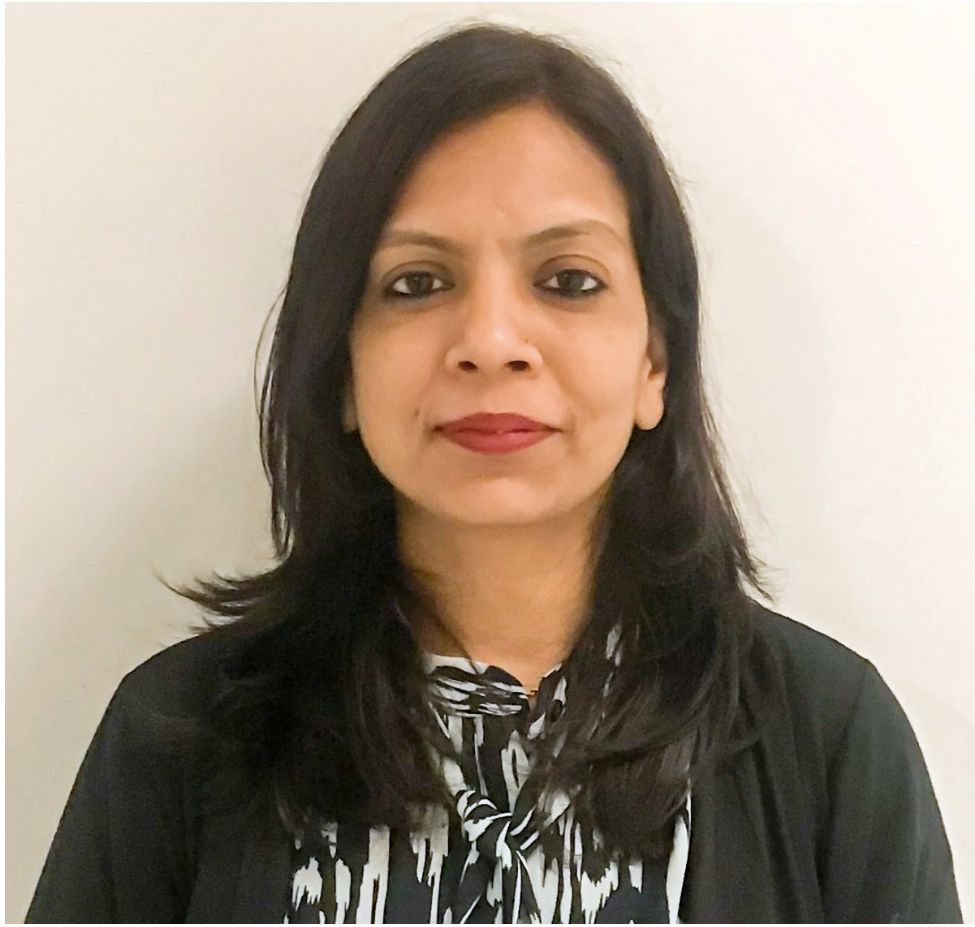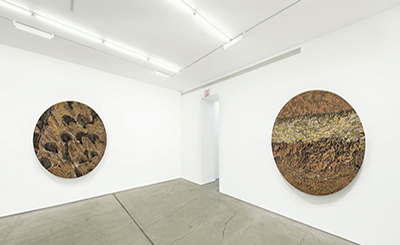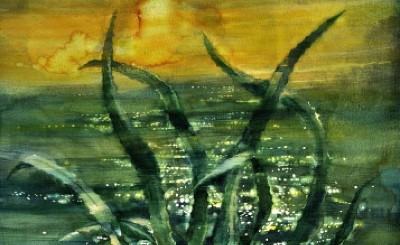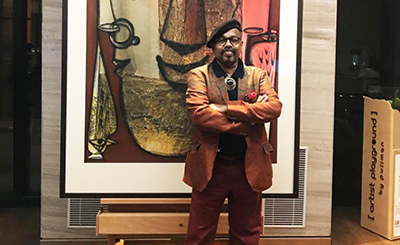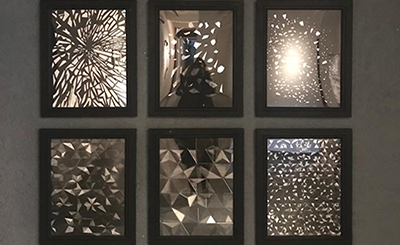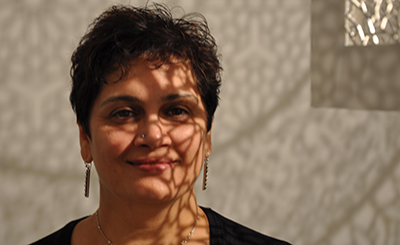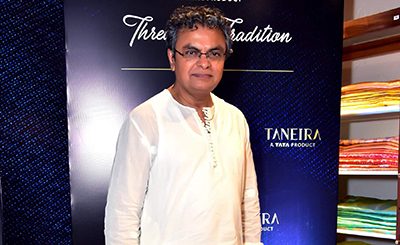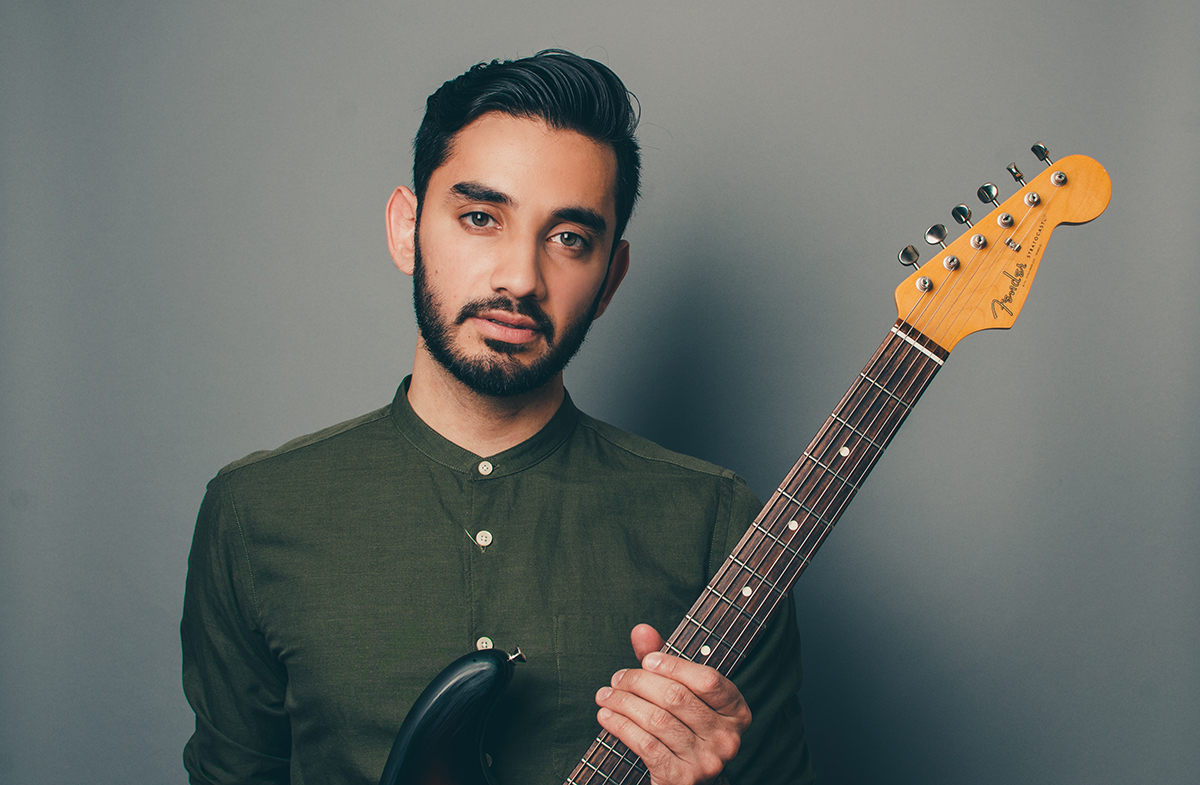
New York-based Indian guitarist and composer Shubh Saran. Photo: Lauren Desberg
Guitarist and composer Shubh Saran, who recently performed at the Udaipur World Music Festival, says he drifts more towards music that straddles multiple styles and cultures
New York-based Indian guitarist and composer Shubh Saran has performed extensively in the United States, India, Canada, Bangladesh, Vietnam and Mexico. Having grown up in six different countries, his career has been shaped by a mixture of influences. In this interview, he says that playing guitar gave him a strong “sense of identity” when he lacked it the most. “When my family moved back to India, I started exploring the idea of mixing the Indian classical and contemporary music I was raised on with my love for rock, pop, blues, and jazz. Even now I find myself drifting more towards music that straddles multiple styles and cultures,” he says. Shubh’s intricate compositions fuse sounds from modern jazz, neo-soul, and rock with classical and contemporary Indian music. On May 7, 2017, he released his full-length debut album Hmayra on Art of Life Records.
Saran, who recently performed at the Udaipur World Music Festival, has performed with a number of renowned artists in the American and Indian music industries, including OMI, American Idol’s Michael Lynche, Timothy Bloom, A.R. Rahman, Clinton Cerejo, Prasanna and Mohini Dey. Saran, who is currently working on releasing five live music videos he recorded while during the recent India tour, says he likes the idea of bringing musicians from both India and the US together to collaborate. Excerpts from the interview:
Shireen Quadri: How have various continents and cultures shaped your sensibility?
Shubh Saran: Growing up around the world heightens your awareness and sensitivity to diversity but at the same time gives you a little bit of an identity crisis. Playing the guitar was something that gave me a strong sense of identity when I lacked it the most. When my family moved back to India, I started exploring the idea of mixing the Indian classical and contemporary music I was raised on with my love for rock, pop, blues, and jazz. Even now I find myself drifting more towards music that straddles multiple styles and cultures.
Shireen Quadri: You went to Berklee College of Music. How has education in music helped you hone your craft?
Shubh Saran: Music education for me was crucial in becoming a performing musician. Aside from learning the technical skills of playing the guitar, composing, arranging, and producing — music school was my first encounter with people taking music very seriously. Having been self taught for most of my life, my music education before Berklee was done in dark corners of my high school music room along with other musical friends. Information was shared and exchanged but there was a limit to how much we could explore due to a lack of serious arts education. Professional music education opened up a world of possibilities I had no idea existed. It gave me the ability to dig deeper into songs and styles I loved and taught me a language I can speak wherever I go.
Shireen Quadri: Your compositions fuse sounds from a variety of palettes, from modern jazz, neo-soul, and rock to classical and contemporary Indian music. What do you find fascinating about this fusion?
Shubh Saran: The most fascinating thing about writing music is that I never decide beforehand that I want my songs to have a mixture of different styles. I let my ear guide me to sounds and textures that I like. When I step back and analyse the song I later find elements of Indian music, jazz, rock, and neo-soul. I try to be as genuine as I can with my taste when I write and that genuineness inevitably leads to some kind of fusion of genres.
Shireen Quadri: You have also performed with a variety of stalwarts like A.R. Rahman, Clinton Cerejo, Prasanna and Mohini Dey. What have your takeaways from these collaborative performances been?
Shubh Saran: Having had the opportunity to perform with such accomplished musicians is a dream come true. The most valuable lesson I’ve learned from watching musicians more experienced than me is the confidence they have in their own sound and voice. They’re open to new ideas and are always looking to expand while retaining a unique quality and a great sense of self that carries throughout the music. It’s something I strive for in my own work.
Shireen Quadri: Tell us about your musical influences. Which are the bands/acts you have grown up listening to and how have your association evolved over the years?
Shubh Saran: I grew up listening to a lot of punk and pop rock — bands like Blink 182, Sum 41 and Green Day. At the same time, I would obsess over Indian Ocean and Shakti. Later on I — like many many other guitar players — spent a lot of time listening to John Mayer, Jimi Hendrix and other great blues/rock inspired guitar players. When I went on to study music in college I was exposed to a whole new world of jazz and modern jazz — musicians like Aaron Parks, Tigran Hamasyan, Django Reinhardt, Gretchen Parlato, Jacob Collier, Kneebody, Wayne Krantz and so many others who I continue to listen to today.
Shireen Quadri: Your first album, Hmayra, is a nine-song album which revolves around the pain of creation. Tell us about the process to create the album.
Shubh Saran: The concept behind Hmayra stems from elements of Indian and Middle Eastern mythology. The album’s title is based on the ancient Syriac word hmayra meaning “hostage.” Historically, these hmayra did not have the negative connotation that hostages do today. Instead, ancient hmayra were handed over willingly to honor a pledge between kingdoms. Although they remained hostages in their new kingdom, hmayra often maintained lifestyles far superior to what they would have enjoyed at home. This exemplifies one of the central themes of the album: the readiness to suffer in order to achieve something greater. The album is a collection of songs I’d written over the span of two years. The musicians on the album are musicians and friends I perform with regularly in New York both in my band and in other projects.
Shireen Quadri: What are some of the recent projects you are working on?
Shubh Saran: Currently, I’m working on releasing five live music videos we recorded while on tour in India. We featured five Delhi-based artists and I arranged their songs for a nine-person band. The artists include Shadow and Light, Chayan and Smiti, Dhruv Visvanath, Pakshee, and Saptak Chatterjee. The first video of the series is set to be out by the end of next month. Along with that I’ll be continuing to perform my music in New York along with another album or EP. I’ve also begun working on the music for a film in India to be released next year.
Shireen Quadri: Are you planning to be back to India?
Shubh Saran: I plan to perform, work, and travel back and forth between in India and New York as much as possible. I like the idea of bringing musicians from both places together to collaborate.
Shireen Quadri: How do you view the music churned out by the Hindi film industry?
Shubh Saran: The Indian film industry today is a multi-genre, multi-language universe that releases vast amounts of great music and film every year. I love a lot of what is being written and feel that directors are now looking for original sounds that allow the music to last. There’s, of course, some work that doesn’t resonate with me but the beauty of that is that there’s something for everyone. The Indian market is huge and diverse and the art we produce should reflect that diversity.
Shireen Quadri: Who are some of the world's best musicians you keep revisiting?
Shubh Saran: I find myself forever in awe of Shakti and Remember Shakti. It’s music I can listen to over and over again while learning something new each time. I also love relistening to really musically dense albums like In My Room by Jacob Collier and Shadow Theatre and Mockroot by Tigran Hamasyan. There are always surprises and layers to be found in every listen. As a guitar player, I keep going back to Django Reinhardt and Charlie Christian.
More from Arts
Comments
*Comments will be moderated



